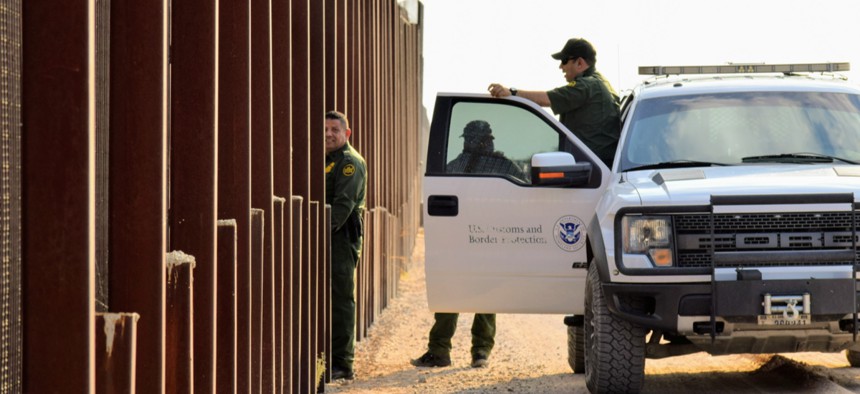Bill Calls for ‘Mile-by-Mile’ Assessment of Tech Needs at the Southern Border

Poli Pix Co. LLC/Shutterstock
Rep. Xochitl Small Torres on Wednesday introduced the Southwest Border Security Technology Improvement Act in the House, a bipartisan bill that’s already moving through the Senate.
The Homeland Security Department will need to perform an analysis of technology needs for securing the U.S. border with Mexico if a new bipartisan bill passes Congress.
Rep. Xochitl Torres Small, D-N.M., announced Wednesday the Southwest Border Security Technology Improvement Act in the House. Co-sponsors to the bill include two Texas Republicans, Michael McCaul and Michael Cloud, as well as Rep. Elissa Slotkin, D-Mich.
The legislation calls for DHS to complete an assessment of technology needs within a year after the legislation is enacted for activities related to managing who and what crosses the border. The analysis may also cover other infrastructure needs, such as physical barriers, as well.
“Since day one in office, I have been calling for a mile-by-mile analysis of the border that reveals the real-time needs of agents and communities living and working along our border,” Torres Small said in a press release. “This bipartisan effort would require that analysis and is another step forward to crafting border policy that reflects the realities on the ground.”
Mirror legislation was introduced in the Senate by Sens. Krysten Sinema, D-Ariz., and John Cornyn, R-Texas last month. Sen. James Lankford, R-Okla., is also a co-sponsor. The legislation has been endorsed by several outside organizations, including the union that represents Border Patrol agents.
The latest action on the Senate bill was a markup by the Homeland Security and Governmental Affairs Committee on July 22. Sinema’s office put out a statement indicating the bill cleared the committee with bipartisan support.
Beyond the needs assessment, the legislation also requires DHS to come up with a plan to meet the gaps it defines in the technology assessment. This could include buying or developing technology the department doesn’t currently possess.
The analysis should encompass updates on both current projects DHS is working on for securing the border and new technologies in which the department is interested. The bill lists surveillance technologies including drones and biometrics as areas the assessment may cover.
Border surveillance technologies such as those outlined for consideration in the bill have drawn privacy concerns in the past. The bill does include a requirement that the assessment covers privacy implications of the technology it is currently using and the technology it is seeking. It asks DHS to emphasize how privacy risks may be mitigated.






